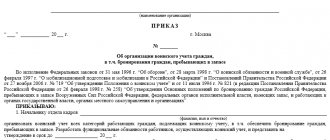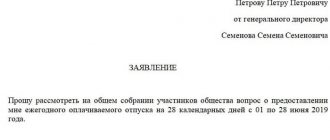Financial liability is the duty of a citizen, in the event of damage to another person, to compensate for it. The procedure and amount of compensation for losses is determined by Russian legislation. The main area of this type of responsibility is labor relations.
An agreement on the financial responsibility of an employee is usually signed upon acceptance for certain positions. This is what must be followed if one party damages the property of the other. This is an effective measure that promotes careful handling of other people's property.
Why do you need an agreement on full financial responsibility of the employee?
Employees are responsible for damage even without a contract. If a person gets a job, he is obliged not to cause harm and to be attentive according to Art. 232 Labor Code of the Russian Federation.
This is limited liability. Limited - because the employee is responsible within the limits of average earnings under Art. 241 Labor Code of the Russian Federation. If he destroys a company car worth 1 million, you can only ask him for a small part of the amount.
The master spilled glue on ten rolls of designer wallpaper. The wallpaper cost 30,000 rubles, and the master’s salary was 20,000 rubles. This means that the employer will pay 10,000 rubles from his own pocket.
In Art. 243 of the Labor Code of the Russian Federation there are exceptions. If an employee caused damage while drunk, acted out or stole, he still pays the full amount. But another problem arises: to prove that he was really drunk or that it was he who stole.
According to the contract, the employee pays in full
The agreement on financial liability removes the restrictions of the Labor Code. The employee compensates for as much damage as he caused, without reducing the amount to the amount of one salary.
Results
Drawing up an agreement on liability with a person entrusted with working with material assets is an issue that is extremely important for an employer interested in the safety of his property. When drawing up this document, you must adhere to a number of rules established by current legislation.
Sources:
- Resolution of the Ministry of Labor of the Russian Federation dated December 31, 2002 N 85
- Labor Code of the Russian Federation
You can find more complete information on the topic in ConsultantPlus. Free trial access to the system for 2 days.
General limitations on full liability
Of course, the employer does not recover damages absolutely freely. There are still restrictions, this is stated in the Review of Court Practice dated December 5, 2018.
Real damage
The employee only pays for actual damage to the employer - Art. 238 Labor Code of the Russian Federation. This is a lack of money, spoilage of food, theft, payments for customer claims or fines from government agencies. Lost profits cannot be recovered from an employee.
The courier lost tablets worth 100,000 rubles, which he was delivering to a client. The employer had to order new ones and cancel the planned purchase for another 500,000 rubles. The disappearance of tablets is real damage, and the employee is responsible for it. A failed order and subsequent sales are lost profits that the employee should not compensate.
Reduction of the amount by the court
The court has the right to reduce the employee's debt. It takes into account what the employee's salary is and whether anyone else was at fault for the damage. An exception is if a person committed a crime: he stole money or organized the sale of goods to a third party. Then the amount cannot be reduced according to 250 Labor Code of the Russian Federation.
The court does not give a discount to everyone. Whether it will happen depends on the skill of the worker during the process.
Employee's fault
You cannot take money from an employee if he is not guilty - Art. 233 Labor Code of the Russian Federation. The employee is not responsible for force majeure events such as flood, fire and robbery. He doesn't keep track of goods during someone else's shift or at night. All similar circumstances are listed in Art. 239 Labor Code of the Russian Federation.
Submit reports without accounting knowledge
Elba is suitable for individual entrepreneurs and LLCs with employees. The service will prepare all the necessary reporting, calculate salaries, taxes and contributions, and generate payments.
Try 30 days free Gift for new entrepreneurs
Is the employee always to blame for the damage?
The employee’s financial liability arises only if the damage is caused by his fault - intentionally or through negligence. Intentional harm refers to the conscious actions of an employee aimed at causing damage to the employer, and negligence refers to the actions of an employee, the consequences of which he was not aware of, although he should have been.
The employee's financial liability is excluded in cases of damage due to force majeure, normal economic risk, extreme necessity or necessary defense, or the employer's failure to fulfill the obligation to provide adequate conditions for storing property entrusted to the employee (Article 239 of the Labor Code of the Russian Federation).
What can be understood as normal economic risk? Its interpretation is given in the resolution of the Plenum of the Armed Forces of the Russian Federation dated November 16, 2006 No. 52. These are the actions of the employee, consistent with modern knowledge and experience, when the goal could not be achieved otherwise, and the employee properly fulfilled his job duties, showed care and prudence, accepted measures to prevent damage, and the object of risk was material assets, and not the life and health of people.
How to draw up a full liability agreement
Agreements on financial liability can be individual or collective (team).
Collective - when people work together and it is impossible to know who to ask. For example, there are three people working in a warehouse. The entrepreneur carried out a monthly inventory and discovered that 5 boxes of shoes were missing. Each employee will pay a third.
Under the collective agreement there is a presumption of guilt. By default, the employee is guilty, but he can prove the opposite - Art. 245 Labor Code of the Russian Federation. For example, he did not enter the warehouse for a whole month, and during the last inventory the shoes were still there. Then there is nothing to collect money for.
How to introduce collective responsibility:
- Issue an order.
— Ask employees to sign an agreement (standard form).
— Appoint a “brigade” leader.
Example: how liability agreements helped in court
An entrepreneur hired two salespeople for a clothing store. He drew up employment contracts and an agreement on collective financial responsibility.
One day, an entrepreneur noticed that there was too little money in the online cash register. The inventory showed that 62,880 rubles were missing. The sellers were supposed to pay the shortfall, but they refused.
Then there was a long dispute with a statement to the police, a trial and accusations of bias on the inventory commission. But in the end, the court said that clothing sellers are fully responsible for the cash register, and the inventory is in order. You will have to pay 32,483 ₽.
Case No. 33-4711/2019
Standard form of an agreement on full individual liability
Standard form of an agreement on full collective liability
The goods and money are transferred to the employee according to the act or an inventory is taken before the start of work.
Categories
CONCLUSION OF AGREEMENTS ON FULL MATERIAL LIABILITY
In accordance with Art. 244 of the Labor Code of the Russian Federation, written agreements on full individual or collective (team) financial responsibility, i.e. on compensation to the employer for damage caused in full for the shortage of property entrusted to employees, are concluded with employees who have reached the age of eighteen and directly service or use monetary, commodity valuables and other property.
In this regard, it should be noted that written agreements on full financial responsibility may not be concluded with all employees who, in one way or another in the labor process, use certain valuables (money, things and production tools) provided by the employer.
Such agreements can be concluded with employees subject to the following conditions:
· workers have reached the age of eighteen, i.e. are of legal age;
· employees directly service or use monetary, commodity values or other property;
· positions or work of employees directly servicing monetary or commodity assets are provided for in the corresponding list.
Lists of works and categories of workers with whom such contracts can be concluded, as well as standard forms of these contracts, are approved in the manner established by the Government of the Russian Federation (Article 244 of the Labor Code of the Russian Federation).
In accordance with Decree of the Government of the Russian Federation of November 14, 2002 No. 823, the Ministry of Labor of Russia, by Decree of December 31, 2002 No. 85, approved the Lists of positions and work replaced or performed by employees with whom the employer can enter into written agreements on full individual financial responsibility for shortages entrusted property.
The first appendix to Resolution No. 85 lists positions the occupation of which allows the employer to conclude an agreement with the employee on full financial responsibility. The second appendix to the resolution contains work, the implementation of which also allows for the conclusion of an agreement on full financial liability.
These Lists are exhaustive. The conclusion of agreements on full liability is permitted only in accordance with the specified Lists.
At the same time, it is necessary to pay attention to the fact that if an employee, with whom an agreement on full financial liability was concluded reasonably, refuses to voluntarily compensate for the damage caused, the employer can obtain recovery only by a court decision.
Typical violations when concluding agreements on full financial liability on the part of employers and employees
Concluding agreements on full financial responsibility with minors
Common violations in practice are cases of illegal conclusion of agreements on full financial liability with minors, whose work is not directly related to the maintenance of inventory items (for example, with secretary assistants).
In accordance with Art. 242 of the Labor Code of the Russian Federation, employees under the age of eighteen bear full financial liability only for intentional damage, for damage caused while under the influence of alcohol, drugs or toxic substances, as well as for damage caused as a result of a crime or administrative offense.
According to Art. 244 of the Labor Code of the Russian Federation, written agreements on full individual or collective (team) financial responsibility, i.e. on compensation to the employer for damage caused in full for the shortage of property entrusted to employees, are concluded with employees who have reached the age of eighteen and directly service or use monetary, commodity valuables and other property.
Thus, taking into account the above provisions of labor legislation, it should be noted that concluding agreements with minors on full financial responsibility for the use and preservation, for example, of office equipment, is unlawful and, accordingly, such agreements are invalid. In this regard, workers can contact the legal labor inspectorate with a statement of violation of their labor rights.
The employee refuses to enter into an agreement on full financial liability
Article 244 of the Labor Code of the Russian Federation establishes the conditions under which agreements on full financial liability are concluded. Paragraph 36 of the Resolution of the Plenum of the Supreme Court of the Russian Federation dated March 17, 2004 No. 2 “On the application by the courts of the Russian Federation of the Labor Code of the Russian Federation” clarifies a number of issues that arise in the event of an employee’s refusal to enter into agreements on full financial liability. And here you need to pay attention to the following:
· when resolving disputes arising in connection with the application of disciplinary measures to employees who refused to conclude a written agreement on full financial responsibility for the shortage of property entrusted to employees in the case when it was not concluded simultaneously with the employment contract, it is necessary to proceed from the fact that, if the performance of duties for the maintenance of material assets is the main labor function of the employee, which was agreed upon when hiring, and in accordance with current legislation, an agreement on full financial liability can be concluded with him, which the employee knew about, refusal to conclude such an agreement should be considered as failure to fulfill labor duties with all the ensuing consequences;
· if the need to conclude an agreement on full financial liability arose after concluding an employment contract with the employee and is due to the fact that, due to changes in current legislation, the position he holds or the work performed is included in the List of positions and work replaced or performed by employees with whom the employer may enter into written agreements on full financial liability, but the employee refuses to enter into such an agreement, the employer, by virtue of Part 3 of Art. 73 of the Labor Code of the Russian Federation is obliged to offer him another job, and in the absence of it or the employee refuses the proposed job, the employment contract is terminated with him in accordance with clause 7 of Art. 77 of the Labor Code of the Russian Federation “Refusal of an employee to continue working in connection with a change in the essential terms of the employment contract.”
A commercial organization engages individuals under contract agreements to perform individual works and at the same time requires them to also enter into agreements on full financial liability.
As follows from Art. 243 and 244 of the Labor Code of the Russian Federation, financial liability in the full amount of damage caused is assigned to the employee when performing his job duties. According to Art. 11 of the Labor Code of the Russian Federation, laws and other regulatory legal acts containing labor law norms do not apply to individuals working under civil contracts.
Thus, there are no legal grounds for concluding agreements on full financial liability with the above-mentioned individuals in such a situation. At the same time, within the framework of the Civil Code of the Russian Federation, an organization can include provisions in a contract with specified persons that provide for responsibility for the safety of material assets belonging to the organization.
An employee who works in a warehouse of a large store and has access to material assets refuses to enter into an agreement on full financial responsibility
In accordance with Art. 244 of the Labor Code of the Russian Federation, written agreements on full financial responsibility are concluded with employees, in addition to other conditions, also in the case of direct service or use of monetary, commodity valuables and other property.
Lists of positions and work replaced or performed by employees with whom the employer can enter into written agreements on full individual or collective (team) financial responsibility, as well as standard forms of agreements on full financial responsibility, were approved by Resolution of the Ministry of Labor of Russia dated December 31, 2002 No. 85. In accordance with the specified Lists, the employer may enter into written agreements on full individual financial liability if the organization employs, in particular, procurement and (or) supply agents, freight forwarders and other employees involved in receiving, procurement, storage, accounting, issuing , transportation of material assets. Thus, the employer has the right to conclude agreements with the above-mentioned employees on full financial responsibility.
As already mentioned, with regard to workers’ refusal to enter into agreements on full financial liability, one should keep in mind clause 36 of the resolution of the Plenum of the Supreme Court of the Russian Federation dated March 17, 2004 No. 2.
The organization enters into an agreement on full financial responsibility with the guard for the property he protects.
As follows from Art. 244 of the Labor Code of the Russian Federation, in order to conclude an agreement on full financial liability, in addition to other conditions, it is also required that the agreement be concluded with employees who directly service monetary or commodity assets. Therefore, contracts should not be concluded, for example, with watchmen, since they do not directly serve these values.
Sample agreement with an employee on full individual financial responsibility.
As Appendix No. 2 to Resolution of the Ministry of Labor of Russia No. 85 of December 31, 2002, a standard form of an agreement on full individual financial responsibility is given. As a general rule, such an agreement can be supplemented with conditions that can only improve the employee’s position in comparison with current legislation, but in no case worsen, otherwise such an agreement will be declared invalid.
Based on the sample contract, individual contracts are developed and signed in organizations. It is the signing of such an agreement that is the basis for full financial liability. In this case, the contract is valid if the employee’s labor function is named in the relevant List, approved by Resolution of the Ministry of Labor of Russia dated December 31, 2002 No. 85. Once again, we draw your attention to the fact that for such responsibility to occur, both a mention in the List and the signing of an individual contract are necessary.
In terms of imposing liability on the employee for failure to ensure the safety of the property entrusted to him, it should be borne in mind that if other persons have access to the property and the right to dispose of it, the court may release the employee from liability.
The amount of damage according to Art. 246 of the Labor Code of the Russian Federation is determined by actual losses, calculated on the basis of market prices prevailing in the area on the day the damage was caused, but not lower than the value of the property according to accounting data, taking into account the degree of depreciation of this property.
According to Art. 248 of the Labor Code of the Russian Federation, compensation for damage by deduction from wages is made if the amount of damage does not exceed the employee’s monthly earnings. This also applies to full financial liability. If an employee causes damage in an amount exceeding his monthly salary and bears full financial liability, the employer does not have the right to withhold the amount of monthly earnings in an undisputed manner; such a dispute is resolved only in court.
Application
SAMPLE FORM OF AN AGREEMENT ON FULL INDIVIDUAL MATERIAL
RESPONSIBILITY
AGREEMENT ON FULL INDIVIDUAL MATERIAL
RESPONSIBILITY
Moscow "__"______2006
Limited Liability Company (hereinafter referred to as the Employer) represented by General Director Ivanov I.I., acting on the basis of the Charter, and citizen Petrov V.V., holding the position of “Warehouse Manager” (hereinafter referred to as the Employee), having the following passport details ( ___________), in order to ensure the safety of goods belonging to the Employer, we have concluded this Agreement as follows:
1. An employee holding the position of warehouse manager, directly related to the storage of goods belonging to the Employer, assumes full financial responsibility for the shortage of goods entrusted to him, as well as for damage incurred by the Employer as a result of his compensation for damage to other persons.
2. The employee undertakes:
· treat the Employer’s goods transferred to him for safekeeping with care and take measures to prevent damage;
· promptly inform the Employer or immediate supervisor about all circumstances that threaten the safety of the goods entrusted to him;
· keep records, draw up and submit in the prescribed manner commodity-monetary and other reports on the movement and balances of goods entrusted to him;
· participate in the inventory, audit, and other verification of the safety and condition of the goods entrusted to him.
3. The employer undertakes:
· create conditions for the Employee necessary for normal work and ensuring complete safety of the goods entrusted to him. For these purposes, the Employer is obliged to provide the Employee with the appropriate premises and equipment necessary to ensure the safety of the goods entrusted to him;
· familiarize the Employee with the current legislation on the financial liability of Employees for damage caused to the Employer, as well as other regulatory legal acts (including local ones) on the procedure for storage, reception, processing, sale (vacation), transportation, use in the production process and other implementation operations with goods transferred to him;
· carry out inventory, audits and other checks of the safety and condition of goods in the prescribed manner.
4. If, through the fault of an employee, the safety of the goods entrusted to him is not ensured, the determination of the amount of damage caused by the Employee to the Employer, as well as the damage incurred by the Employer as a result of his compensation for damage to other persons, and the procedure for their compensation are made in accordance with current legislation.
5. The employee does not bear financial responsibility if the damage is caused through no fault of his own.
6. This agreement comes into force from the moment of its signing. This Agreement applies to the entire period of work with the Employer’s goods entrusted to the employee.
7. This Agreement is drawn up in two copies, the first of which is kept by the Employer’s administration, and the second by the Employee.
8. Changes in the terms of this Agreement, addition, termination or termination of its validity are carried out by written agreement of the parties, which is an integral part of this Agreement.
Addresses and signatures of the parties to the Agreement.
How to recover damages from an employee
The main rule for collecting damages from employees is to follow the Labor Code. The rules are spelled out in Art. 246, 247 and 248. If you do not comply with them or do not draw up documents at all, the court will cancel the penalty, and the Labor Inspectorate will fine you under 5.27 of the Administrative Code.
Here we will tell you the general procedure, and read the article for details.
— Assemble an independent commission.
— Take an inventory with her and calculate the loss.
— Get an explanation from the employee.
— Issue an order to deduct from wages.
— If the employee agrees to pay immediately or more than 20% of the salary, make an agreement on compensation.
— If an employee refuses to pay, go to court.
The shortage was discovered after the employee was fired
Dismissal does not relieve the employee of responsibility. You can recover damages even if the person no longer works for you - Art. 232 of the Civil Code of the Russian Federation. The problem is that the employee can hide and then challenge the amount in court. It’s easy to insure yourself: take an inventory before each dismissal.
Damage compensation procedure
The employee can compensate for the damage independently, guided by a written agreement. If voluntary compensation is refused, recovery is made on the basis of a court order, or an order from the administration of the organization, if the employee continues to work at the enterprise.
There are conditions for reimbursement:
- the damage is real;
- harm is caused by one party to the employment agreement to another;
- the employee's guilt has been proven. This does not apply to the situation if the problem arose due to a source of increased danger for which the enterprise administration is responsible;
- the cause-and-effect relationship between the activity or inactivity of the specialist and the incident that resulted in damage has been confirmed;
- There are no mitigating circumstances that would allow the employee to be relieved of responsibility.
Situations of this kind in most cases arise due to an offense. Therefore, as with disciplinary sanctions, an explanation should be taken from the employee. It is also necessary to prove the crime.
Errors in full liability agreements
A large amount of judicial practice has already developed under these agreements. We have analyzed it and will tell you about the popular mistakes made by employers.
The employee did not participate in the inventory
An employee cannot be found guilty without explanation. The employer must familiarize him with the commission’s conclusion and give him the opportunity to speak out. Otherwise it will turn out to be biased. The court will cancel the penalty, following the Review of Court Practice dated December 5, 2018.
The position is not on the list, but the contract was concluded
You shouldn't rely on intuition. Even if you are sure that the employee must bear full financial responsibility, check the list of the Ministry of Labor. If there is no suitable clause, there is no agreement.
A car mechanic changed the oil on a client's car. He did not tighten the drain plug properly and over time the oil spilled out. The car stopped in the middle of the road because the engine stopped. The car service admitted its guilt and compensated the driver for the costs of calling a tow truck and repairs. And then he began to deal with the employee.
The car mechanic signed an agreement on full financial liability. The entrepreneur filled out the documents and went to court. The court said: neither the position of a mechanic nor car repair work is on the list of the Ministry of Labor. The contract is illegal, so the employee is liable within the limits of his monthly salary.
Case No. 33-4390/2015.
If your employee works with expensive goods, formalize the receipt with one-time documents - deeds and powers of attorney. Then responsibility will also be full under Art. 243 Labor Code of the Russian Federation.
Contract registration log
The signed agreement must be assigned a number and the appropriate registration procedure must be carried out.
It is these actions that confirm the fact of the creation of the document , for which all agreements on international defense are drawn up in a special journal.
The Contract Registration Journal indicates all the main features of the document (number, date, full name and position of the executor).
Logbook for registering agreements on liability, sample and blank form.
Each agreement is registered once on the day it is received , after which it becomes legally binding.
Order to appoint a responsible person
The current legislation does not establish a unified form, however, when drawing up any primary documents, the rules provided for by Law dated December 6, 2011 No. 402-FZ should be taken into account. According to it, the form must contain the following information:
- name and details of the organization;
- date and document number;
- preamble: the purpose of the document and references to legal norms;
- main part: the essence of the order (list of persons who are responsible for certain property values. Their positions and responsibilities must be indicated);
- signatures of the manager and employees.
A sample order for the appointment of a financially responsible person is as follows:
Order to prosecute
To oblige an employee to pay compensation, the following grounds must exist:
- The illegality of his behavior. That is, the employee ignored his job duties or performed them improperly, which led to negative consequences.
- Guilt. It can be either in the form of intent (the person was aware of the illegality of his actions and foresaw their consequences), or in the form of negligence (he understood and was aware of everything, but arrogantly expected to prevent harm, or did not foresee the risk, although he should have due to the nature of his work) .
- The presence of real damage (damage to property, shortage). This is a real decrease in property or deterioration in its condition, which inevitably entails expenses for its purchase and restoration. Thus, an employee cannot be forced to compensate for lost profits, only for real losses (Article 238 of the Labor Code of the Russian Federation).
- Direct cause-and-effect relationship between losses and illegal actions.
In order for an employee to compensate for damage, the manager must issue a corresponding document. The order on the employee’s financial responsibility must contain the following information:
- grounds for bringing to responsibility;
- FULL NAME. and the position of the employee;
- the amount to be recovered;
- information about the officials who are responsible for executing the order;
- information about familiarization with the order of the worker and the person entrusted with control over the execution of the order.
Sample order on financial responsibility of an employee
List approved by law
The list is contained in the already indicated appendix to the resolution of the Ministry of Labor and includes:
- cashiers and all similar positions related to the receipt of funds;
- managers, deputy managers;
- positions related to the issue and management of banknotes, including write-off and destruction, ATMs, coins made of precious metals;
- laboratory technicians;
- heads of libraries;
- pharmacists, pharmacists, managers in pharmacies;
- managers of warehouses and other storage facilities;
- warehouse and storage workers;
- heads of installation shops and construction work;
- collector drivers;
- heads of organizations and food and consumer services;
- hotel managers;
- methodologists of departments and dean's offices.
Article 246. Determination of the amount of damage caused
The amount of damage caused to the employer in the event of loss and damage to property is determined by actual losses, calculated on the basis of market prices prevailing in the area on the day the damage was caused, but not lower than the value of the property according to accounting data, taking into account the degree of depreciation of this property.
Federal law may establish a special procedure for determining the amount of damage subject to compensation caused to an employer by theft, intentional damage, shortage or loss of certain types of property and other valuables, as well as in cases where the actual amount of damage caused exceeds its nominal amount.
Hidden problems
These include either an incomplete list of circumstances under which one can be forced to answer, or vice versa - the employer used a prohibited technique, for example, forced a person to sign a document who cannot be punished for damage to the organization, for example, an office manager.
Such agreements are considered invalid .
In other words, there is nothing wrong with MO. It is much more dangerous to play hide and seek with the law - no one wins from this.
Personnel out of sight
But those who are ignored are distributors, sales agents, and sales managers.
Their relationship with the company is usually sealed by a civil contract without a clause on material obligations, and therefore, it is impossible .
In an effort to increase profits and reduce costs as much as possible, employers often forget about basic caution .
This is what cunning managers use. Even if shortages or other violations are revealed, those cannot be forced to compensate for the damage to the organization.







